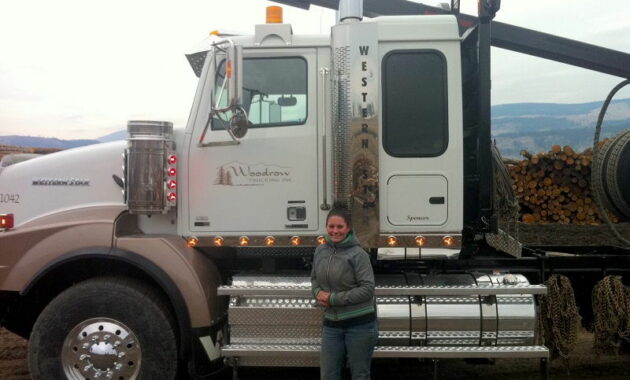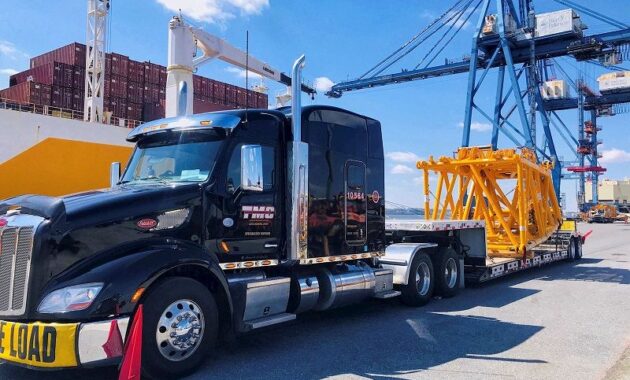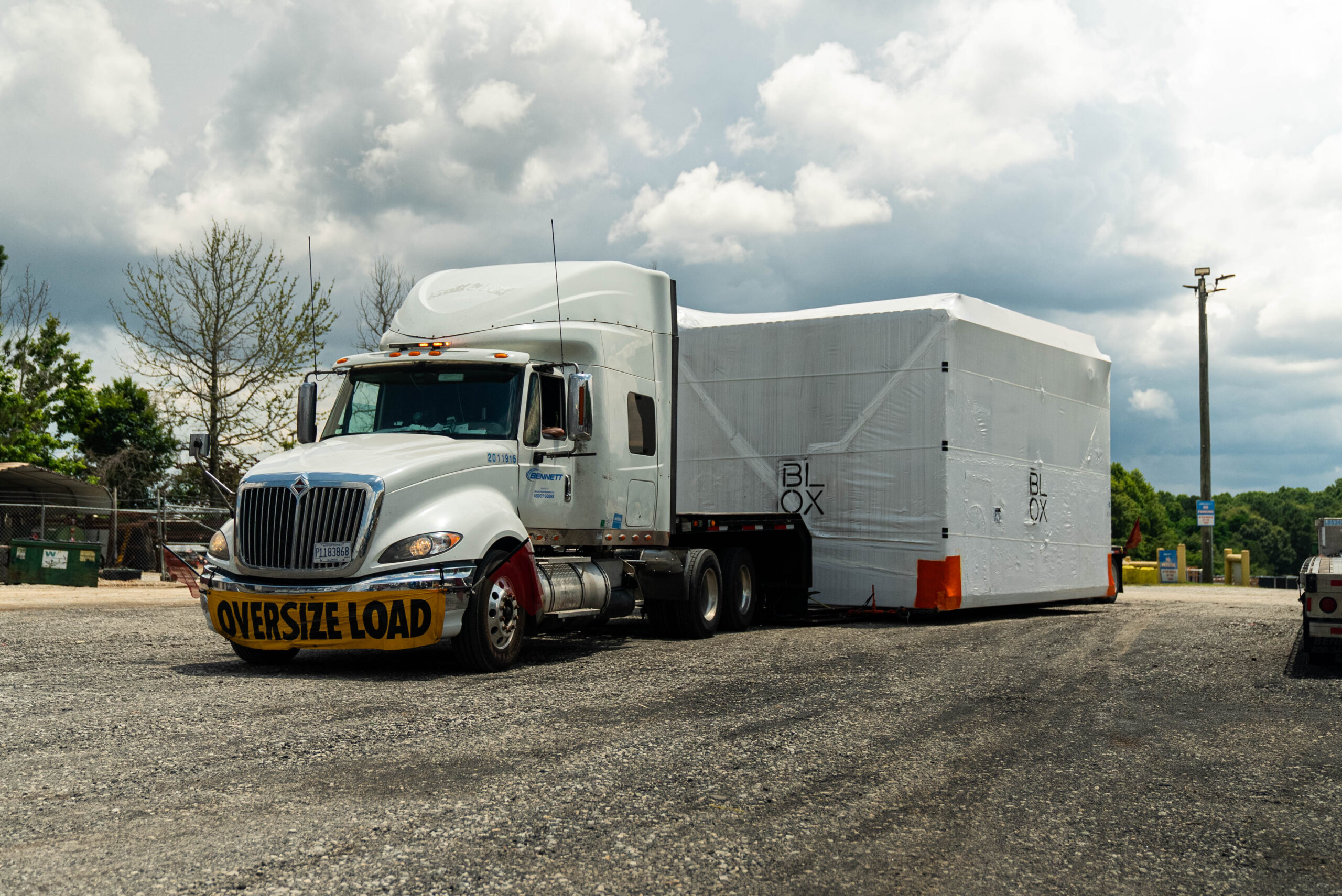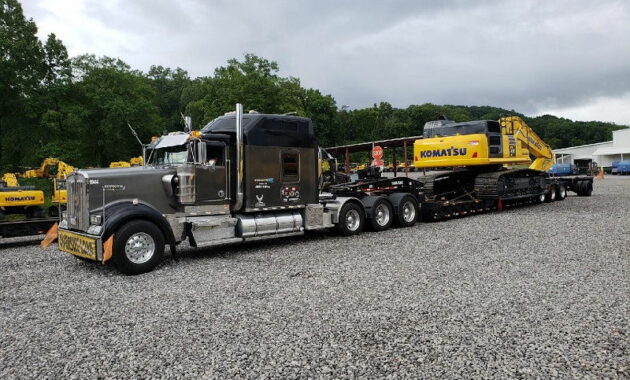Owner Operator Heavy Haul Trucking Jobs sale.truckstrend.com
Introduction: The Titans of the Road
In the vast and vital landscape of commercial transportation, a specialized niche stands out for its monumental challenges and significant rewards: Owner Operator Heavy Haul Trucking. This demanding sector involves the transport of oversized and overweight loads that standard freight carriers simply cannot handle. From colossal wind turbine components and massive industrial machinery to pre-fabricated bridges and mining equipment, heavy haul truckers are the unsung heroes moving the very foundations of modern infrastructure and industry.
Owner Operator Heavy Haul Trucking Jobs
Becoming an owner operator in heavy haul isn’t just about driving a truck; it’s about running a highly specialized business that requires unparalleled skill, meticulous planning, and a deep understanding of complex regulations. For those with the right blend of entrepreneurial spirit, mechanical aptitude, and a passion for tackling monumental tasks, heavy haul offers not only substantial financial potential but also the unique satisfaction of moving the impossible. This comprehensive guide will delve into every facet of owner operator heavy haul trucking, equipping you with the knowledge needed to navigate this challenging yet incredibly rewarding career path.
What is Heavy Haul Trucking?
Heavy haul trucking, often interchangeably referred to as specialized transport or oversized/overweight (OS/OW) hauling, involves moving cargo that exceeds the standard legal limits for weight, width, height, or length on public roads. Unlike general freight, which typically adheres to maximum dimensions and weights, heavy haul loads require special permits, specialized equipment, and often, escort vehicles to ensure safe passage.
Typical Heavy Haul Cargo Includes:
- Construction Equipment: Excavators, bulldozers, cranes, loaders.
- Industrial Machinery: Turbines, generators, transformers, presses.
- Agricultural Equipment: Large tractors, combines, irrigation systems.
- Mining Equipment: Drills, massive trucks, processing units.
- Oil & Gas Components: Pipelines, drilling rigs, refinery modules.
- Infrastructure Elements: Bridge beams, pre-cast concrete sections, modular buildings.
- Wind Energy Components: Blades, tower sections, nacelles.


Each of these loads presents unique challenges, demanding specific trailer configurations, precise load securement, and expert route planning to avoid obstacles like low bridges, narrow turns, and weak roadways.
Why Become an Owner Operator in Heavy Haul?
The allure of owner operator heavy haul trucking is multifaceted, drawing individuals who seek independence, significant earning potential, and the thrill of complex problem-solving.
- High Earning Potential: Heavy haul rates are significantly higher than general freight due to the specialized equipment, expertise, permits, and risks involved. While expenses are also higher, successful owner operators can achieve substantial net incomes.
- Independence and Autonomy: As an owner operator, you are your own boss. You choose your loads, set your schedule (within regulatory limits), and manage your business. This autonomy is a major draw for those tired of company restrictions.
- Challenging and Engaging Work: Every heavy haul job is a unique puzzle. From navigating permits across multiple states to planning routes that account for every obstacle, the work is mentally stimulating and far from monotonous.
- Specialized Skill Development: You’ll constantly refine skills in logistics, negotiation, mechanical maintenance, and regulatory compliance, making you a highly valuable professional in the transportation industry.
- Pride in Accomplishment: Moving an enormous piece of equipment across the country safely and efficiently provides an immense sense of achievement. You are directly contributing to major industrial and infrastructure projects.

Key Requirements and Qualifications
Embarking on a heavy haul owner operator career demands more than just a Commercial Driver’s License (CDL). It requires a comprehensive skillset and significant preparation.
- CDL Class A: This is the fundamental requirement.
- Experience: Most heavy haul companies or brokers will require a minimum of 2-5 years of verifiable over-the-road (OTR) experience, with at least 1-2 years specifically in flatbed or specialized hauling. Experience with oversized loads is crucial.
- Specialized Equipment Knowledge: A deep understanding of different trailer types (RGNs, lowboys, multi-axle, extendables), their capacities, and how to operate them is essential.
- Regulatory Compliance: You must be proficient in understanding federal and state regulations regarding weight limits, dimensions, permits, escort requirements, and flagging.
- Mechanical Aptitude: Being able to perform basic maintenance and troubleshoot issues on the road can save significant time and money.
- Strong Financial Management: Running a business requires excellent budgeting, accounting, and tax planning skills.
- Business Registration and Licensing: Registering your business (LLC, Sole Proprietorship), obtaining an MC (Motor Carrier) number, DOT number, UCR (Unified Carrier Registration), and IFTA (International Fuel Tax Agreement) decals are foundational.
- Comprehensive Insurance: This is non-negotiable and often the most significant ongoing expense. You’ll need primary liability, cargo insurance, physical damage, bobtail, and often workers’ compensation (if you hire drivers).
Essential Equipment for Heavy Haul
The right equipment is the backbone of a successful heavy haul operation. It represents a significant investment but is critical for handling the unique demands of oversized and overweight loads.
- Power Unit (Tractor):
- Engine: High horsepower (500+ hp) and high torque are critical for pulling heavy loads up inclines.
- Transmission: Manual transmissions are common for precise control, often with 13, 18, or even more gears. Automated manuals are gaining popularity.
- Axles: Tandem axles are standard, but some heavy haul trucks feature tridem or even quad-axle configurations for increased Gross Vehicle Weight Rating (GVWR).
- Strong Frame: Reinforced frames are essential to withstand the immense stress of heavy loads.
- Wet Kit: A hydraulic system that powers specialized trailers (e.g., hydraulic detach on RGNs).
- Specialized Trailers:
- Removable Gooseneck (RGN) / Lowboy: The most common heavy haul trailer. The front of the trailer detaches, allowing equipment to be driven onto the deck. Available in 2, 3, 4, or more axles, with capacities ranging from 40 to 150+ tons.
- Multi-Axle Trailers: For extremely heavy loads, these trailers distribute weight over many axles (e.g., 9-axle, 13-axle, 19-axle, or even modular transporters).
- Extendable Flatbeds/Step Decks: Can extend to accommodate extra-long loads like wind turbine blades or bridge sections.
- Double Drop Trailers: Similar to RGNs but with a fixed neck, offering a low deck height for tall loads.
- Securement Gear:
- Chains and Binders: Heavy-duty chains (Grade 70 or higher) and appropriate binders are essential for securing massive equipment.
- Straps: For lighter components or where chains might damage cargo.
- Dunnage: Wood blocks or other materials used to support and protect the load.
- Tarps: For protecting certain cargo from weather.
- Flags, Lights, and Banners: Oversize load signs, rotating beacons, and red flags are legally required for OS/OW loads.
Navigating Permits, Regulations, and Escorts
This is perhaps the most complex aspect of heavy haul trucking and where precision is paramount. Every state has its own set of regulations for oversized and overweight loads, which can vary significantly.
- State-Specific Permits: Before moving an OS/OW load, you must obtain permits from every state (and sometimes county or city) you will travel through. This involves submitting detailed information about the load’s dimensions, weight, and proposed route.
- Weight and Dimension Limits: Each state has legal limits for height, width, length, and axle weights. Exceeding these limits requires a permit and often specific route restrictions.
- Bridge Laws: States have specific bridge formulas that dictate how much weight can be distributed over a certain number of axles and length. Heavy haul loads often require bridge analyses.
- Pilot Cars/Escorts: Depending on the load’s dimensions and the state’s regulations, pilot cars (front and/or rear) and sometimes police escorts are mandatory. These vehicles ensure safety, warn traffic, and guide the truck.
- Route Planning and Surveys: Meticulous route planning is crucial. This involves checking for low bridges, tight turns, road construction, detours, and even specific times of day or night when movement is allowed. Sometimes, a physical route survey is required.
- Curfew and Travel Restrictions: Many states impose curfews, restricting OS/OW travel during peak hours, weekends, or holidays. Night travel may be restricted or only allowed with specific lighting and escort configurations.
Financial Considerations and Earning Potential
While heavy haul offers high revenue, it also comes with substantial operating costs and startup capital requirements.
Estimated Financial Snapshot for Owner Operator Heavy Haul (Annual Averages):
| Category | Estimated Range (Annual) | Notes |
|---|---|---|
| Startup Costs | ||
| Used Truck (Heavy Haul Spec) | $80,000 – $180,000+ | Can go much higher for new or specialized units. |
| Used Heavy Haul Trailer | $40,000 – $150,000+ | RGNs, multi-axles are expensive. |
| Initial Permits & Licenses | $2,000 – $5,000 | DOT, MC, IFTA, UCR, state permits. |
| Insurance (First Year) | $18,000 – $35,000+ | Can be higher for new authorities. |
| Contingency/Working Capital | $10,000 – $20,000 | Essential for unexpected repairs, slow periods. |
| Total Startup (Estimate) | $150,000 – $400,000+ | Varies greatly based on equipment age, condition, and type. |
| Annual Operating Expenses | ||
| Fuel | $60,000 – $100,000+ | Highly variable based on mileage, fuel prices, and truck efficiency. |
| Insurance (Ongoing) | $15,000 – $30,000 | Varies based on driving record, equipment, and coverage. |
| Maintenance & Repairs | $15,000 – $30,000+ | Can be very high for older equipment or unexpected breakdowns. |
| Tires | $5,000 – $10,000 | Replacement costs. |
| Permits (Load Specific) | $10,000 – $30,000+ | Varies by number of loads, states crossed, and complexity. |
| Tolls | $2,000 – $8,000 | Can be higher on specific routes. |
| Escorts/Pilot Cars | $10,000 – $40,000+ | Highly dependent on load frequency and complexity. |
| Broker Fees (if applicable) | 5% – 15% of gross | If working with brokers. |
| Truck Payments | $12,000 – $30,000 | If financed. |
| Trailer Payments | $5,000 – $15,000 | If financed. |
| Total Operating Expenses | $130,000 – $278,000+ | Excluding truck/trailer payments, can be lower or higher. |
| Revenue & Profit Potential | ||
| Gross Revenue (Annual) | $250,000 – $500,000+ | Highly variable based on load frequency, complexity, and rates. |
| Net Income (Owner Operator) | $80,000 – $200,000+ | After all operating expenses, before personal taxes. |
Factors Affecting Rates:
- Weight & Dimensions: Heavier and wider/taller loads command higher rates.
- Distance: Longer hauls generally mean higher total pay, but per-mile rates might vary.
- Complexity: Loads requiring extensive permitting, multiple escorts, or specific timing will pay more.
- Urgency: Expedited heavy haul services fetch premium rates.
- Geographic Region: Rates can vary by region based on demand and competition.
Challenges and Solutions
Despite the lucrative potential, heavy haul owner operator life is not without significant hurdles.
- High Initial Investment: Acquiring the specialized truck and trailer is a major financial commitment.
- Solution: Start with a solid business plan, secure financing, and consider purchasing well-maintained used equipment to reduce initial outlay.
- Complex Permitting & Regulations: The ever-changing rules across states can be overwhelming.
- Solution: Utilize professional permit services. Invest in software or subscriptions that track state regulations. Build relationships with experienced heavy haul dispatchers or brokers.
- Finding Consistent Loads: Specialized loads are not as abundant as general freight.
- Solution: Network extensively with brokers, shippers, and other heavy haulers. Join specialized load boards. Consider working under a reputable heavy haul company’s authority initially.
- Maintenance and Downtime: Breakdowns are costly and can jeopardize permits and schedules.
- Solution: Implement a rigorous preventative maintenance schedule. Have a reliable network of mechanics. Budget generously for repairs.
- Weather and Road Conditions: Inclement weather or unexpected road closures can cause significant delays and added costs.
- Solution: Monitor weather forecasts diligently. Maintain open communication with shippers and permit offices. Build buffer time into schedules.
- High Insurance Costs: Due to the high value of cargo and potential for damage, insurance premiums are substantial.
- Solution: Shop around for quotes from multiple providers. Maintain a clean safety record. Consider joining trucking associations that offer group insurance rates.
Tips for Success
Thriving as an owner operator in heavy haul requires more than just driving skill; it demands business acumen and strategic planning.
- Gain Experience First: Before going independent, work for a reputable heavy haul company for a few years. Learn the ropes, build contacts, and understand the intricacies of the business.
- Network, Network, Network: Connections are gold. Build relationships with brokers, shippers, permit services, pilot car companies, and other owner operators. Referrals and repeat business are vital.
- Master Permitting and Route Planning: This is a core competency. Understand the nuances of each state’s regulations. Use specialized software or services to streamline the process.
- Prioritize Preventative Maintenance: Your equipment is your livelihood. Regular inspections and proactive maintenance will minimize costly breakdowns and downtime.
- Build a Strong Financial Foundation: Keep meticulous records of all income and expenses. Set aside funds for taxes, maintenance, and unexpected costs. Consider hiring an accountant specializing in trucking.
- Invest in Technology: GPS systems designed for trucks (with low bridge warnings), advanced load securement tools, and communication devices are crucial.
- Be Adaptable and Patient: Heavy haul trucking often involves unforeseen delays and challenges. A calm, problem-solving mindset is essential.
- Safety First, Always: Adhere strictly to all safety regulations, secure loads meticulously, and prioritize safe driving practices. Your reputation and livelihood depend on it.
Conclusion
Owner operator heavy haul trucking is undeniably one of the most demanding and specialized niches within the transportation industry. It requires substantial capital investment, an unwavering commitment to safety and compliance, and a relentless pursuit of operational excellence. However, for those who embrace its challenges, the rewards are equally substantial. The high earning potential, the freedom of being your own boss, and the immense satisfaction of moving the world’s largest and most critical cargo make it a profoundly rewarding career.
It’s a path for the meticulous, the resilient, and the entrepreneurial. By understanding the intricacies of equipment, mastering the labyrinth of regulations, and cultivating strong business practices, aspiring heavy haul owner operators can carve out a highly successful and deeply fulfilling career, becoming true titans of the road.
Frequently Asked Questions (FAQ)
Q1: How much experience do I need to get into heavy haul trucking?
A1: Most heavy haul operations prefer drivers with at least 2-5 years of verifiable Class A CDL experience, with a significant portion of that time dedicated to flatbed, specialized, or oversized load hauling. Some companies might require even more.
Q2: What is the typical startup cost for an owner operator in heavy haul?
A2: Startup costs can range widely, from $150,000 to over $400,000, depending on whether you buy new or used equipment, and the type of specialized trailer needed. This includes the truck, trailer, initial insurance, permits, and working capital.
Q3: How much can a heavy haul owner operator earn?
A3: Gross revenue for a successful heavy haul owner operator can range from $250,000 to $500,000+ annually. Net income after all expenses (excluding personal taxes) typically falls between $80,000 and $200,000+, but this is highly dependent on load frequency, rates, and effective cost management.
Q4: Do I need special permits for every heavy haul job?
A4: Yes. For every load that exceeds standard legal limits (in weight, width, height, or length), you will need to obtain specific oversized/overweight permits from every state (and sometimes local jurisdictions) you will travel through.
Q5: What’s the most challenging aspect of heavy haul trucking?
A5: Many owner operators agree that navigating the complex and often varying state-specific regulations, obtaining timely permits, and managing the associated logistics (like pilot cars and route surveys) are among the most challenging aspects. Financial management and equipment maintenance are also significant challenges.
Q6: What type of insurance is required for heavy haul?
A6: You’ll need comprehensive insurance including primary liability, cargo insurance (often with higher limits due to high-value loads), physical damage coverage for your truck and trailer, and potentially bobtail/non-trucking liability and workers’ compensation (if you have employees). Insurance costs are a significant ongoing expense.
Q7: How do heavy haul owner operators find loads?
A7: Loads are typically found through specialized heavy haul brokers, direct relationships with shippers (manufacturers, construction companies, energy firms), and niche heavy haul load boards. Networking within the industry is crucial for consistent work.




